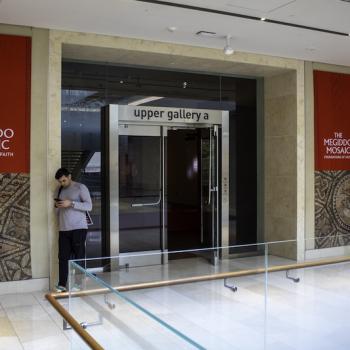
What do you do for rest? Some like to kick up their feet with a good book or a favorite TV show. Others go for a run or work out at the gym or try to hit a really small ball into a really small hole with an odd-looking stick. Some like to always have people around while others need their time alone. Some vacate to tropical paradises while others explore concrete jungles. Regardless of what we do for rest, it is humbling to know that we need it.
Application Insight: God built rest into your daily routine by making your body dependent on sleep. Every time you lay your head on the pillow you acknowledge to yourself and to the rest of the world that you are not the God who holds the universe together. In fact, you do not even function well without your sleep.
Jesus speaks this comforting truth to our fast-paced society: “Come to me, all who labor and are heavy laden, and I will give you rest” (Matthew 11:28). For in the beginning, God established rest as the pattern in creation: “Thus the heavens and the earth were finished, and all the host of them. And on the seventh day God finished His work that He had done, and He rested on the seventh day from all His work that He had done. So, God blessed the seventh day and made it holy, because on it God rested from all His work that He had done in creation” (Genesis 2:1–3). Now when Scripture says God rested, it does not mean that He was tired. He had not lost His voice from speaking forth the universe out of nothing. He had not wearied His hands from fashioning Adam from the dust or the woman from Adam’s side. He had not overwhelmed His mind devising the manifest wonders of creation. God wasn’t winded. He didn’t need a breather. He was neither suffering from fatigue nor were his muscles aching from the lactic acid build-up.
God’s omnipotence means that no matter how much power He exudes, His power is not depleted in the slightest: “The LORD is the everlasting God, the Creator of the ends of the earth. He does not faint or grow weary” (Isaiah 40:28). Instead, the word here for “rest” (shabbat), simply means “to cease from doing.” God ceased His creative activity. His rest was not the collapse of a weary sculptor, but rather joy like a sovereign king as He sat down to rule. God rested on the Sabbath day to consecrate His work.
Application Insight: Rest acknowledges your faith in God. So, when you cease from labor, thank the Lord for your work as an act of worship. Take breaks throughout the day as opportunities for prayerful reflection. Then, before you go to sleep each night, meditate on specific attributes of God (especially his omnipotence).
Have you ever finished a task which brought you a sense of achievement: A project at work, a final exam, a do-it-yourself home-improver, or pulling off a grand old party? Recall your satisfaction in the job well-done. The same was true of God’s celebration on creation’s seventh day: “In six days the LORD made heaven and earth, and on the seventh day He rested and was refreshed” (Exodus 31:17). The Lord took great delight in all that He had made. Then, like a master artist, He paused to admire and reflect upon His finished work with pride. Creation was not the work of anyone else, but “His work” alone (Genesis 2:2–3).
By the dawn of the seventh day, God ceased creating: no more stars to shape in the heavens, no more animals to conjure by His word, no modifications to the original plan. The creation account emphasized completion: “All the host of them” were finished (v. 1); “All His work that He had done” (v. 2); “All His work that He had done in creation” (v. 3). In fact, “the heavens and the earth” (v. 1) was a figure of speech encompassing the entire universe: the heavens and the earth and everything in between. By God’s design, each week now has seven days to remind us regularly that He created this world in just six days and rested on the seventh.
Application Insight: Have you ever tried to accomplish a project multiple times, but still failed to get it right? Marvel at God’s creative power to fashion the universe rightly on His very first try. When God finished His work completely, He rejoiced over all that He had made. So, one form of rest is to delight in God’s creation like He does.
God finished His work. Then, on Day 7, He rested. He did not cease from all activity, but only His creative activity. Surely, God continued to sustain this world by the word of His power (Hebrews 1:3b). He did not simply wind it up like a clock and leave it running on its own. He still governs the world by His providential arm and still works for good in peoples’ lives today. As Jesus declared, “My Father is working until now, and I am working” (John 5:17). Paul also affirmed, “And we know that for those who love God all things work together for good, for those who are called according to His purpose” (Romans 8:28). God remains active in this world, for He created a world reliant on Him for its existence. Thus, we are greatly comforted that the Almighty God neither sleeps nor slumbers (Psalm 121:4). When Scripture says, “God rested,” He simply ceased creating (Genesis 2:2). God rested at the completion of creation by ascending to His majestic throne like a heavenly monarch. With great joy, He turned to face His royal court, then sat upon His throne to rule.
Some claim, by contrast, that Day 7 remains endlessly ongoing since the seventh day did not possess the familiar refrain: “And there was evening and there was morning, the [nth] day.” Yet another day certainly came after Day 7 of the creation week and each successive day following. The lack of a closing refrain did not mean that Day 7 continued indefinitely, but implied that God’s rest might have continued if not for sin. The seventh day was only twenty-four hours long (like any other natural day), yet God’s rest was made to last forever. Eden could have eternally existed in a state of pristine perfection and mankind might have lived for infinite days without the taint of sin: no death or decay, suffering or pain, or labor as we think of labor in a fallen world. Man had been made to enjoy God’s rest for all eternity if Adam and Eve had chosen not to sin.
We do not know how long this perfect paradise was enjoyed. Yet it seems that the fall soon followed the creation because Adam and Eve, before the curse of infertility, had not yet begun to multiply children. They were still exploring the wonders of the garden. Thus, Eden was likely broken while still in bubble wrap—a paradise popped before it was fully explored. Yet for at least one day, God rested. As John MacArthur summarizes the Scripture:
It was a rest from the work of creation while God delighted in the goodness of everything He had made. It was characterized by divine delight and satisfaction. He was pleased and refreshed by the excellence of His work. He enjoyed perfect fellowship with Adam and Eve—and they with Him. He had ceased from His creative work, and He was perfectly satisfied with it. That first Sabbath was the most delightful day in the history of the universe.
Despite what happened afterward, this day was special when God finished His work and rested from creation. “So God blessed the seventh day and made it holy, because on it God rested from all His work that He had done in creation” (v. 3).
Application Insight: Consider how it must have been to live in Edenic paradise with perfect bodies and perfect minds without the taint of sin. What hope does this grant us in the fallout of our fallen world? What hope does it point to for eternal glory?
As God stamped His approval on the seventh day, He set it apart from all the others to be spiritually fruitful. The first two blessings in the creation account emphasized physical blessings: “Be fruitful and multiply,” God had said to the fish and the birds (1:22). “Be fruitful and multiply,” He had said to the man and the woman (v. 28). Yet God bestowed the day of rest with spiritual blessings: “May my people rest and be refreshed on the Sabbath day. May they abound in the fullness and the richness of life. May they remember my power and glory in creation.” This day of rest revealed God’s kindness to mankind—an opportunity in this present, rustled age to rest one day in seven. Each weekly Sabbath would then promise a future rest in heaven through our faith in Jesus Christ.
Day 7 was also set apart as holy, for God saw everything He had made and declared it very good (v. 31). So, not only was the world completed on Day 6, but it was also made devoid of evil. Sin had yet to enter the garden, therefore suffering and death remained unknown. Thus, man lived in a luxurious paradise, experiencing every good gift of God. He was enjoying the honeymoon with his wife and unhindered fellowship with his Creator. And this wonderful life could have continued forever, for “God blessed the seventh day and made it holy” (2:3a). God, however, did not rest for long. For when man sinned, God stopped His rest to take up the glorious work of redemption. He began his re-creation of the paradise and His re-creation of broken lives throughout the story of the Bible. As we progress beyond the Genesis account, we discover that Sabbath rest will find fulfillment in the redemption of God’s people. Thus, Scripture moves from creation to the covenant, then to the cross before the final consummation.
Reflection: If mankind had not sinned (Genesis 3), what might the world be like today? How would this be different or similar to the promise of heaven in the age to come (Revelation 21–22)? Reflect on the goodness of God’s creation, then on the greater glory of His re-creation.
5/26/2023 4:15:42 AM





